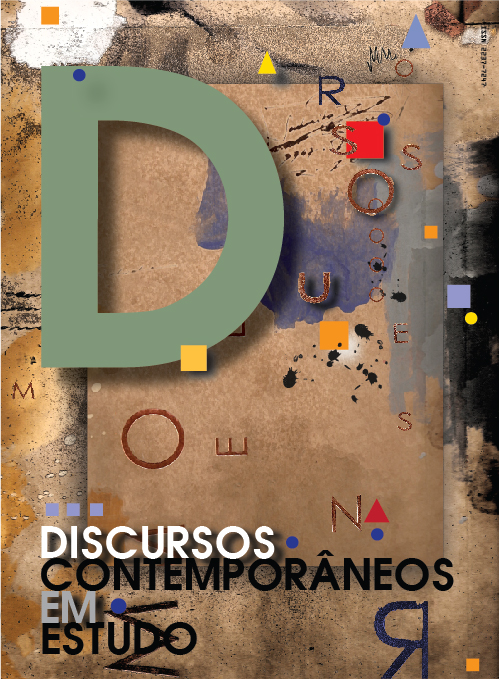Discurso, discurso meu, diga-me: quem sou eu? A representação social de resistência da presidenta Dilma Rousseff em tempos de crise
DOI:
https://doi.org/10.26512/discursos.v3i1.2018/8641Abstract
This critical social discourse research aims to investigate a) how DilmaRousseff, the President of the Federative Republic of Brazil, built her social representation of resistance in the course of 2015. The corpus comprises of the official speeches by the Rousseff. The analysis is based on the main assumptions of the Critical Discourse Analysis (CDA), particularly in the conception by Norman Fairclough (2001; 2003) andPedro (1998); on the Theory of Social Representation as in Guareschi and Jovchelovitch (2013) and Minayo (2013); and in connection with Social Actors Representation by van Leeuwen (1998).The methodology is qualitative, while the analytic categories follow van Leeuwen (1998). Results show that President Rousseff represented herself in a dual role in 2015: on the one side as an active, leading member of the social body formed by all Brazilians; on the other side, as an agent that acts as protagonist of the Brazilian sociopolitical scene.
References
BAUER, M. W.; GASKELL, G. Pesquisa qualitativa com texto, imagem e som. Um manual prático. 2. ed. Petrópolis: Vozes, 2015.
CHARAUDEAU, P. Discurso Político. São Paulo: Contexto, 2015.
FAIRCLOUGH, N. Analysing Discourse: Textual analysis for social research. London, New York: Routledge, 2003.
_______________. Discurso e mudança social. Izabel Magalhães Coord. da tradução. Brasília: Editora Universidade de Brasília, 2001.
FARR, R. M. Representações sociais:a teoria e sua história. In: GUARESCHI, Pedrinho; JOVCHELOVITCH, S. (Org.). Textos em representações sociais. Petrópolis: Vozes, 2013.
FLICK, U. Uma introdução à pesquisa qualitativa. Tradução de S. Netz. 2.ed. Porto Alegre: Bookman, 2004.
GUARESCHI, P.; JOVCHELOVITCH, S. Introdução. In: GUARESCHI, Pedrinho; JOVCHELOVITCH, S. (Org.). Textos em representações sociais. Petrópolis: Vozes, 2013.
JOVCHELOVITCH, S. Vivendo a vida com os outros: intersubjetividade, espaço e público e representações sociais. In: GUARESCHI, Pedrinho; JOVCHELOVITCH, S. (Org.). Textos em representações sociais. Petrópolis: Vozes, 2013.
MINAYO, M. C. de S. O conceito de representações sociais dentro da sociologia clássica. In: GUARESCHI, Pedrinho; JOVCHELOVITCH, S. (Org.). Textos em representações sociais. Petrópolis: Vozes, 2013.
OLIVEIRA, E. A. C. O discurso sobre as mulheres fruta no jornal Folha de São Paulo: novas formas de comodificação do feminino na modernidade tardia. X ENCONTRO DO CELSUL ”“ Círculo de Estudos Linguísticos do Sul UNIOESTE. 1. 2012. Cascavel (PR). Anais do X ENCONTRO DO CELSUL ”“ Círculo de Estudos Linguísticos do Sul UNIOESTE. Cascavel: Universidade Estadual do Oeste do Paraná Cascavel-PR, 2012.
PEDRO, E. R. (Org.). Análise Crítica do Discurso: aspectos teóricos, metodológicos e analíticos. In: PEDRO, E. R. Análise Crítica do Discurso. Uma perspectiva funcional e analítica. Lisboa: Editora Caminho, 1998.
VAN LEEUWEN, T. A representação dos actores sociais. In: PEDRO, Emília R. Análise Crítica do Discurso. Lisboa: Caminho, 1998.
Downloads
Issue
Section
License
Autores que publicam nesta revista concordam com os seguintes termos:
a) Os(as) autores(as) mantêm os direitos autorais e concedem à revista o direito de primeira publicação, sendo o trabalho simultaneamente licenciado sob a Creative Commons Attribution License o que permite o compartilhamento do trabalho com reconhecimento da autoria do trabalho e publicação inicial nesta revista.
b) Os(as) autores(as) têm autorização para assumir contratos adicionais separadamente, para distribuição não-exclusiva da versão do trabalho publicada nesta revista (ex.: publicar em repositório institucional ou como capítulo de livro), com reconhecimento de autoria e publicação inicial nesta revista.
c) Autores têm permissão e são estimulados a publicar e distribuir seu trabalho on-line (ex.: em repositórios institucionais ou na sua página pessoal) após o processo editorial, já que isso pode gerar alterações produtivas, bem como aumentar o impacto e a citação do trabalho publicado (Veja O Efeito do Acesso Livre).
d) Os(as) autores(as) dos trabalhos aprovados autorizam a revista a, após a publicação, ceder seu conteúdo para reprodução em indexadores de conteúdo, bibliotecas virtuais e similares.
e) Os(as) autores(as) assumem que os textos submetidos à publicação são de sua criação original, responsabilizando-se inteiramente por seu conteúdo em caso de eventual impugnação por parte de terceiros.




